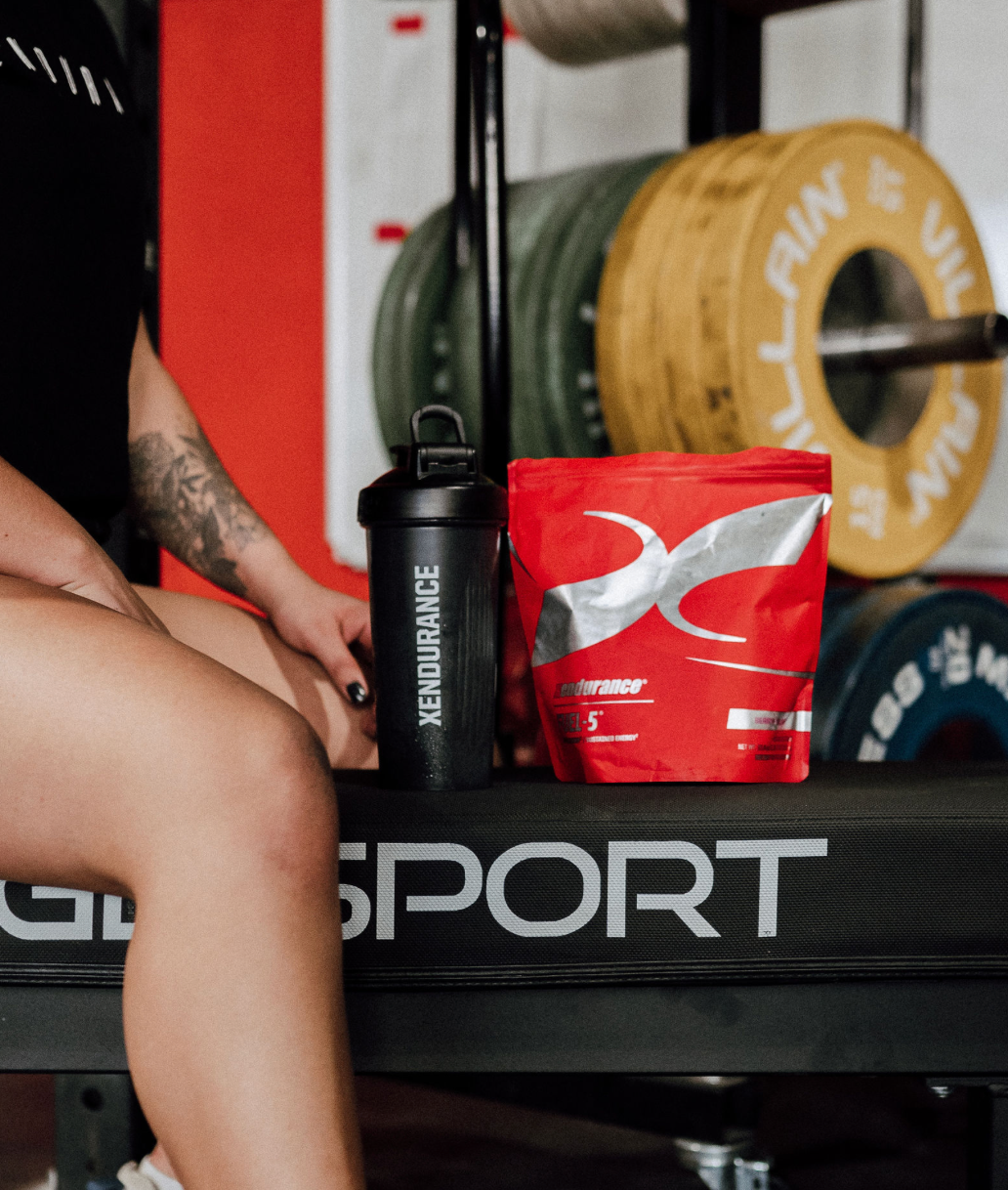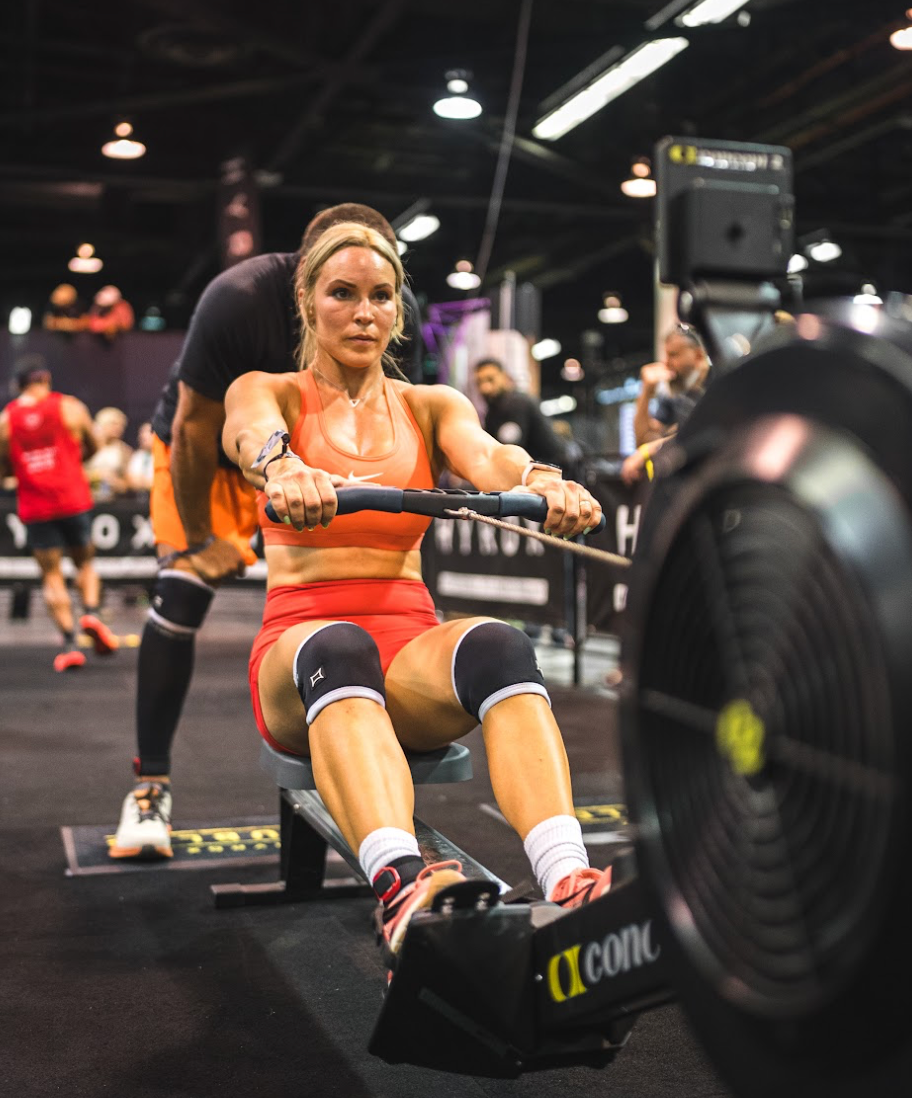Parents often go to great lengths to support their children's athletic ambitions. Whether by enrolling them in specialized training programs, purchasing the best equipment, or ensuring they have access to top-tier coaching, many parents are deeply invested in their child's success. In their drive to help their young athletes excel, some may consider introducing performance supplements to enhance strength, endurance, and recovery. However, before making such decisions, it is essential to understand the potential benefits and risks, particularly for growing teenagers.
Supplement Warning Labels for Those Under 18: Should You Be Concerned?
Warning labels on supplements advising against use by individuals under 18 exist for valid reasons and is a cautionary statement found on almost every product. Many supplements contain high levels of caffeine, creatine, and other performance-enhancing ingredients that could impact a developing body differently than an adult's. Adolescents experience rapid hormonal and physiological changes, and introducing high doses of certain substances could interfere with growth, cardiovascular health, and mental well-being. While some ingredients, such as electrolytes and vitamins, may be generally safe, others, like stimulants and hormone-modulating compounds, require further research. Parents and young athletes should be cautious and consult healthcare professionals and the supplement company for guidance before incorporating supplements labeled "18+" into their regimen.
Assessing Nutritional Needs Before Considering Supplements
Before jumping into supplements, parents should take a closer look at the diet and overall health of their young athlete. What nutrients might be missing? How much of each essential nutrient is being consumed through whole foods? It is also important to assess the symptoms of potential deficiencies, such as low energy levels, slow recovery, muscle fatigue, or even poor concentration and mood swings. Instead of immediately turning to supplementation, parents and athletes should first work on optimizing their diet by including a variety of nutrient-dense foods.
A well-balanced diet remains the foundation of optimal athletic performance. It should include:
- Carbohydrates: The primary fuel source for endurance and strength training. Whole grains, fruits, and vegetables provide sustained energy.
- Proteins: Essential for muscle repair and growth. Lean meats, poultry, fish, dairy, legumes, and plant-based proteins should be prioritized.
- Fats: Important for long-term energy storage and hormonal health. Healthy fats from sources like nuts, seeds, avocados, and olive oil contribute to overall well-being.
- Vitamins and Minerals: Crucial for recovery, immune function, and overall performance. Ensuring a variety of colorful fruits and vegetables in the diet can help meet these needs.
- Hydration: Proper hydration supports metabolism, muscle function, and endurance. Water should always be the primary source of hydration, with electrolyte drinks used strategically during intense exercise.
Does Your Teenager Consume a Healthy, Nutrient-Rich Diet?
Does any teenager truly get all their performance fuel solely from their diet? The reality is that most young athletes have hectic schedules packed with school, training, homework, and social activities. This often leads to a reliance on quick, grab-and-go foods that may not provide the necessary nutrients to sustain energy levels throughout the day. Many teens opt for fast food, processed snacks, or high-sugar energy drinks, which can lead to energy crashes and inadequate recovery. Without a well-balanced diet that includes protein, complex carbohydrates, and healthy fats, young athletes may find themselves struggling to maintain endurance and focus, particularly during late-day practices or training sessions. Here is where supplementation plays a part in their sport or activity.
The Importance of Sleep for Teen Athletes
While supplements can support athletic performance, they should never replace fundamental lifestyle factors such as sleep and diet. Sleep is one of the most crucial components of athletic recovery and overall health, yet it is often overlooked by young athletes. During adolescence, the body undergoes rapid growth and development, making sleep essential for muscle recovery, hormone regulation, and cognitive function.
Teenagers need 8 to 10 hours of quality sleep per night to support their physical and mental development. However, with busy schedules filled with school, training, and social activities, many teens fall short of this recommendation. Lack of sleep can lead to fatigue, decreased reaction time, impaired concentration, and a higher risk of injury.
Key benefits of adequate sleep for young athletes include:
- Enhanced muscle repair and growth: Sleep stimulates protein synthesis and the release of growth hormones, which are essential for muscle recovery and development.
- Improved reaction time and cognitive function: A well-rested brain processes information faster, leading to better decision-making and coordination during competition.
- Reduced injury risk: Fatigue from insufficient sleep increases the likelihood of poor form and slower reflexes, which can contribute to sports-related injuries.
- Strengthened immune system: Sleep supports immune function, reducing the risk of illness that could interfere with training and competition.
- Better emotional and mental well-being: Consistent sleep helps regulate mood and stress levels, ensuring that athletes stay focused and motivated.
To optimize sleep quality, teen athletes should establish a consistent bedtime routine, limit screen time before bed, and create a comfortable sleep environment. Prioritizing sleep as much as training and nutrition can make a significant difference in athletic performance and overall health.
Understanding Protein and Recovery in Teen Athletes
Protein is essential for teenagers recovering after a game or practice, as it plays a crucial role in muscle repair, recovery, and growth. After intense exercise, muscle fibers experience microscopic damage that requires adequate protein intake to rebuild stronger and more resilient muscles.
Teen athletes should prioritize high-quality protein sources such as protein powders. Protein supplementation is a convenient and effective way to support recovery, particularly after a game or practice. Many colleges and sports programs encourage athletes to consume a protein drink within 20-30 minutes post-exercise to optimize muscle repair and replenish energy stores. Whey protein, plant-based proteins, and casein are excellent choices, as they provide essential amino acids necessary for recovery. By incorporating a balanced protein source into their post-training routine, young athletes can enhance performance, reduce muscle soreness, and ensure sustained progress in their sport.
While protein powders, such as whey and plant-based options, can be convenient for post-training recovery, teens should avoid protein supplements with excessive additives and artificial sweeteners such as Sucralose or high sugar content.
Determining the right amount of protein is key. General recommendations suggest that teenage athletes consume between 1.2 to 2.0 grams of protein per kilogram of body weight daily, depending on activity level and training intensity. A 150-pound (68 kg) athlete, for example, would need between 82 to 136 grams of protein per day. Spreading protein intake evenly throughout the day, including post-exercise, ensures optimal muscle recovery and performance gains. Parents and athletes should monitor energy levels, muscle soreness, and overall diet quality to determine if adjustments to protein intake are necessary.
Pre-Workouts: Are They Safe for Teens?
As a parent, you may want to explore all options when considering pre-workouts for your teen athlete. Investigating the ingredients is crucial—does the product contain caffeine, and if so, how much? What type of carbohydrates are included? Are there artificial colors, flavors, or sweeteners? Understanding the specific needs of your teenager’s sport can help guide informed decisions. If the goal is increased energy during practice, reviewing ingredient labels and discussing them with a knowledgeable healthcare professional who understands the nutritional needs of athletes can be beneficial.
Teen athletes can also benefit from natural energy boosters such as balanced pre-training meals, proper hydration, and adequate sleep. Ensuring that they fuel their bodies with whole foods rich in carbohydrates, proteins, and healthy fats before training can significantly improve performance and endurance. Staying well-hydrated and maintaining consistent sleep patterns further enhance energy levels, focus, and overall athletic output.
Hydration Drinks: A Vital Component for Performance and Recovery
Hydration is an essential factor in athletic performance and recovery, and for teenage athletes, it can become a non-negotiable part of their regimen. During intense training sessions, games, or endurance events, maintaining proper hydration is critical for muscle function, temperature regulation, and overall energy levels. When athletes sweat, they lose vital minerals such as sodium, potassium, and magnesium, which must be replenished to prevent dehydration, cramping, and fatigue.
Electrolyte-enhanced hydration drinks can serve as an effective and safe supplement, especially when workouts exceed an hour, involve extreme heat, or include back-to-back practices. Unlike pre-workouts, most hydration drinks do not contain stimulants or a lot of sugar and are specifically formulated to restore essential electrolytes and sustain energy. Products like Hydro** from Xendurance** offer a balanced hydration and energy source for endurance athletes without excessive artificial additives, making them a great option for young athletes needing sustained performance throughout their training.
Parents and athletes should prioritize hydration as much as their nutrition, ensuring that fluids are consumed consistently before, during, and after workouts. Ignoring hydration can lead to early fatigue, decreased concentration, and a significant drop in performance levels. By incorporating hydration drinks strategically, teen athletes can optimize endurance, enhance recovery, and maintain peak physical condition.
Extreme Endurance by Xendurance: A Safe Option for Teenagers?
One of the most frequently asked questions at Xendurance is whether Extreme Endurance is safe for teenagers. Xendurance offers a range of products designed for athletic performance, including Extreme Endurance, which helps reduce muscle soreness and improve aerobic capacity. Many adult athletes rely on it to enhance endurance and recovery. However, before teenagers incorporate any supplement into their routine, it is essential to consult with a knowledgeable source—whether a coach, registered dietitian, or healthcare provider—to understand how each ingredient affects a developing body.
Parents of teen athletes are encouraged to reach out directly to Xendurance or the supplement company they are interested in to ask specific questions about product safety, ingredients, and recommended usage. Speaking with a customer service representative ensures parents get the most accurate and up-to-date information regarding their child’s athletic needs. Informed decisions help ensure that young athletes are receiving proper nutrition and supplementation that align with their long-term health and performance goals.
Creatine Usage for Teen Athletes
Creatine is one of the most researched sports supplements, with clinical studies showing its effectiveness in improving strength, power, and muscle recovery. While generally considered safe for adults, the question remains: should teenagers take creatine? Research suggests that creatine supplementation may be beneficial for athletes in late puberty, typically around 16-18 years old, when hormonal and muscular development is more mature. Since boys experience a more significant testosterone increase during puberty than girls, they may see greater muscle gains from creatine. However, female athletes can also benefit from its effects on endurance and recovery.
The recommended dosage for teen athletes is typically 3-5 grams per day, which can help improve high-intensity performance without adverse effects. Creapure® creatine monohydrate is widely regarded as the safest and most effective form due to its high purity and rigorous testing standards. As always, teen athletes considering creatine should consult with a knowledgeable healthcare professional, coach, or dietitian to ensure it aligns with their training needs and overall health.
Final Thoughts: How Teens Can Safely Incorporate Supplements
With the right approach, performance supplements can be a beneficial addition to a teenage athlete’s regimen. By conducting proper research, consulting healthcare professionals, and understanding their child’s unique nutritional needs, parents can make informed decisions about safe supplementation. Products like protein powders, hydration drinks, and scientifically-backed endurance aids can complement a well-structured training and nutrition plan, supporting energy levels, muscle recovery, and overall athletic performance.
For those considering supplements like Extreme Endurance or Fuel-5, reaching out to a knowledgeable customer service representative or sports nutrition expert is highly recommended. Ensuring product quality, proper dosing, and suitability for a young athlete's developmental stage is key. Ultimately, the most effective way for teenagers to enhance performance is by balancing proper training, nutrition, hydration, rest, and the right supplementation choices, rather than relying solely on supplements.









Leave a comment
This site is protected by hCaptcha and the hCaptcha Privacy Policy and Terms of Service apply.